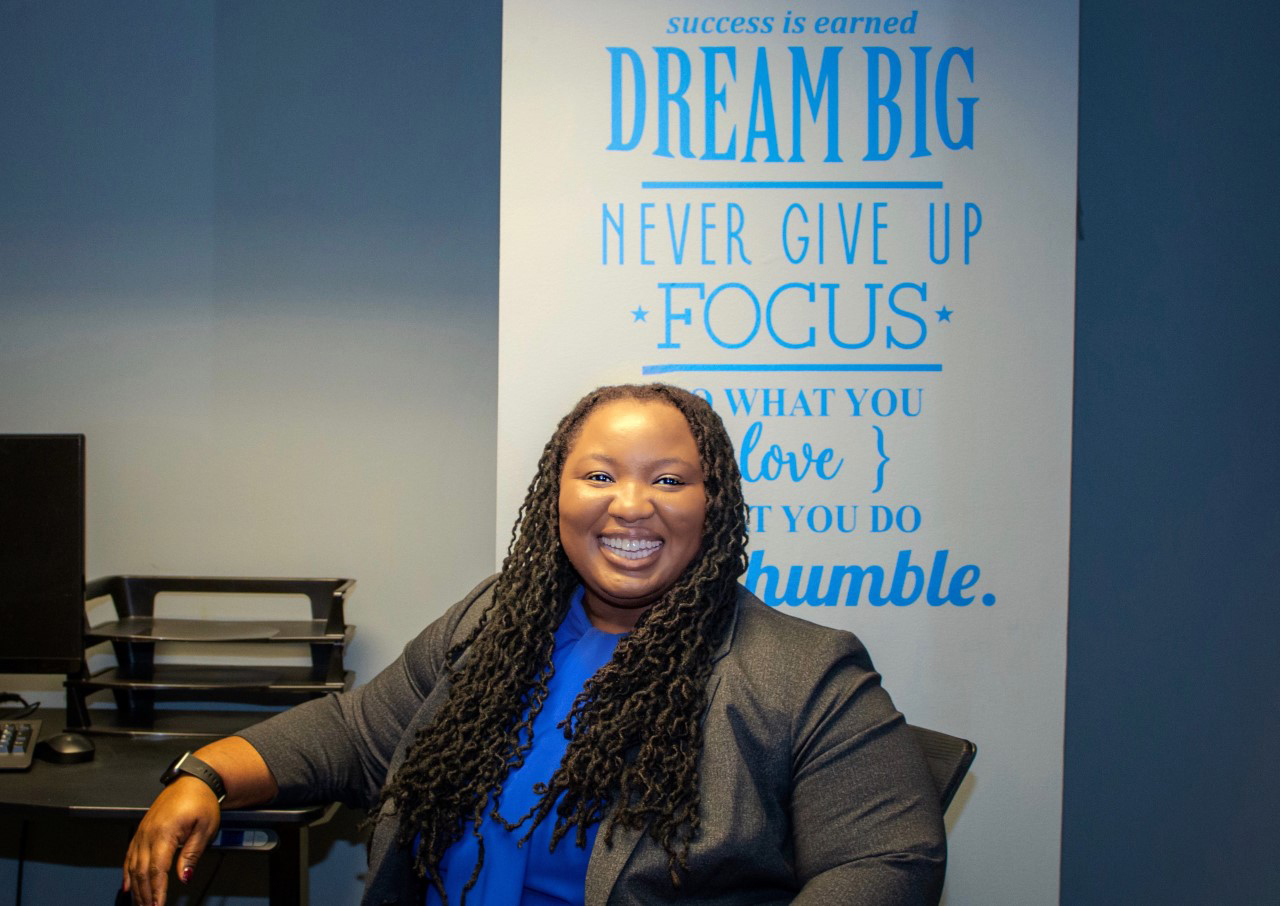Developmental psychologist Shauna Cooper studies the cultural and contextual factors that contribute to positive youth development.

Throughout her career, UNC-Chapel Hill developmental psychologist Shauna Cooper has focused on families, especially African-American families — boys, girls, fathers, mothers. But the surprising findings from her early research studies made her especially curious about the lives of fathers and adolescent girls.
Subsequent studies by Cooper have built upon this prior work. For example, in a recent study published in the Journal of Child and Family Studies, Cooper found that fathers’ communication and parental knowledge reduced substance use risk from early- to mid-adolescence.
“This work continues to refine my thinking around two key questions: What’s the nature of father-adolescent relationships? What are things that predict long-term outcomes for girls and boys?” she said.
But Cooper also grew interested in the other side of the relationship — how positive interaction impacts the fathers. “Given the statistical data that over 60% of African-American fathers do not reside in the same household as their children,” said the associate professor of psychology and neuroscience, “we focus a lot on this topic.”
Though an important area of discussion, “we know that many fathers, those that live inside or outside of the home, are involved in the lives of their children,” Cooper said. “Ultimately, my goal is to identify and understand the various factors that shape fathers’ involvement and lead to positive impacts on their children.”
Cooper, who joined the faculty of UNC’s College of Arts & Sciences in 2017 after nine years at the University of South Carolina, is still fascinated by fathers. “We over-focus on mothers — for good reason, because we know that mothers are robust predictors of outcomes for children,” she said. But that leaves a gap in the literature.
Cooper and her team at the Strengths, Assets and Resilience Lab are helping fill that research gap. The StAR Lab explores the ways in which families, schools and communities influence positive development among African-American adolescents and youth. In one National Science Foundation-funded project, Cooper led a longitudinal study of African-American fathers and families, with the goal of understanding the key factors related to fathers’ involvement. Most recently, she led a study of over 600 African American fathers from across the United States, examining how awareness of fathering stereotypes shapes parent involvement, mental and physical health.
She’s especially interested in studying fathering from the father’s perspective. “If you think about the early history of fathering research, we asked mothers what fathers did, and we also asked the kids,” Cooper said. “For certain populations of fathers — non-residential fathers, fathers of color — a lot of that early work didn’t reflect their own voice.” Cooper said one of the undercurrents of her work is hearing from fathers — not just about their involvement but also what shapes their ideologies about parenting. A recent study, published in the Journal of Family Issues, examined this premise—how fathers’ relationships and interactions with their fathers and father figures shape beliefs about fathering roles and responsibilities.
The other gap in the literature she is working to fill involves fathering beyond the context of early childhood. Cooper and her team study relationships between fathers and their adolescent children — youths transitioning to adulthood — including how those experiences modify how fathers choose to parent. “It’s thinking about fathers not as risks, which has been the historical perspective, but as assets,” Cooper said. “Adolescence is a key time to think about fathers as assets for children.”
Though Cooper spends much of her time on fundamental science, she hopes her work will make a difference in the world. “I consider myself an intermediary between research and translational science,” she said. “We’re trying to answer all of these questions about the experiences of families, particularly families of color, but in the spirit of addressing some of the larger issues, such as barriers to fathers’ involvement.”
Cooper and her lab are in the early stages of putting together the pieces of a large-scale intervention with fathers and their children. Through that work, she hopes to partner with organizations and communities. “We hope to promote positive outcomes for kids but also address some of the disparities we see with African-American men,” she said.
Cooper also tries to make a difference in the lives of her students. At the most basic level, she’s exposing them to psychological science. What are the things that we can do with psychological science? What are the questions that we can answer?
“I have a mentoring environment that allows students to not just be an apprentice,” Cooper said. “I require all of my students to develop their own individual identity as a scholar. That makes the lab a richer environment.”
Cooper said she’s also prepping a new generation of scientists to be engaged and responsive to the populations they research. “I believe in developing leaders who are strong researchers, but who can also translate the work and understand its social impact.”
By Logan Ward, College of Arts & Sciences
